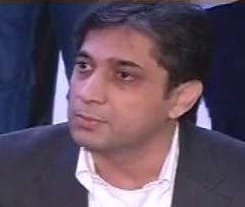VIJAY KUMAR IAS,CEO OF DELHI JAL BOARD FLAGS OF CONSTRUCTION OF WWTP AT DJB H.O
Delhi Jal Board sets a role model for recycling of water and zero energy consumption
CEO, DJB flags off construction of WWTP at Varunalaya Phase-I
Water being a finite and valuable resource, use of treated effluent can play a major role in bridging the supply and demand gap. In its consistent efforts for effective utility management and use of innovative solutions to further enhance its services, DJB is setting up a Wastewater Treatment Plant at its Headquarter, Varunalaya Phase-I, with the technical support of the Center for Science and Environment (CSE). The CEO, DJB, today, flagged off construction of the Wastewater Treatment Plant. The construction work will be completed within a period of 4 months.
Delhi’s water supply demand is around 1080 Million Gallons per Day (MGD) whereas; only 840 MGD of water is available from all sources. The solution lies in either reducing water losses or supplementing non-potable water demand with recycled water. The treated effluent (Recycled water) has the potential of being utilized in several areas such as irrigation, horticulture, power plants, flushing, construction industries and washing systems. Effective utility management can help utilities to respond to both current and future challenges.
The plant will treat 20 kiloliters of sewage daily and the treated effluent will be used for various non-potable purposes i.e. horticulture, washing etc. The treatment of sewage is based on the natural process of treatment by aerobic and anaerobic reaction. The process involves sedimentation, anaerobic baffle reactor and planted gravity filter. Sewage collected from the building will pass through well-designed septic tanks for anaerobic reaction, which will decompose organic matters resulting into reduced BOD by 90%. Further effluent will pass through filter media and roots of plants, which will further reduce the BOD of treated effluent to around 10 ppm. Treated effluent received through this process will be of good standard, odor free and shall be used for horticulture and flushing purpose. The existing tube well shall be abandoned and will be used for the purpose of rainwater harvesting.
The recycling plant to be set up at the Delhi Jal Board Headquarters is based upon the alternate approach of Decentralized Wastewater Treatment (DWWT). DWWT works on the important principle of devolving level of application so that sewage can be treated at affordable costs, cutting the cost of pumping long distances and promoting local reuse of treated sewage. The sludge tank will be cleaned once in 5 to 6 years. Hence, it is maintenance free. The plant is also cost effective as there is no electricity consumption cost involved in running the plant. It, therefore, provides both resource and financial savings.
Storage of this recycled water is set up at higher altitude so that pumping of treated effluent will be eliminated. It is a more integrated approach for diverse ecosystems as opposed to the conventional technologies of wastewater (sewage) collection and treatment which are natural resource intensive (use water first to flush, then to carry the waste), as well as being capital and energy intensive.
Delhi Jal Board has been instrumental in promoting Wastewater treatment and local reuse- at community, institutional and individual building level, and applying locally adequate treatment technology as it can help achieve the twin objectives of equity and sustainability. With this initiative, Delhi Jal Board has strengthened its mandate of providing water and wastewater services to the citizens of Delhi and will continue to push the envelope to provide long term solutions to the water needs of the city. DJB also encourages other departments to take up such initiatives which will help to restore rapidly depleting ground water level and reduce dependency on the ground water as raw water source.
********





